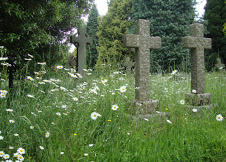
A funeral marks the close of a human life on earth. It is the opportunity for friends and family to express their grief, to give thanks for the life which has now completed its journey in this world and to commend the person into God’s keeping.
As far back into history as we can penetrate, human beings seem to have felt the need for a ceremonial leave-taking of those who have died.
The funeral service of the Church of England can be very short and quiet with only a few members of the family present or an occasion of great solemnity with music, hymns and a packed church.
Whether in a parish church or a crematorium chapel, it can be the plain funeral service from the Prayer Book or Common Worship or with the addition of hymns, favourite prayers and readings, an address. It can very appropriately be set into the context of a Communion Service.
Whatever the pattern of service, the words and actions all speak of a loving God and the preciousness to Him of every human being.
Questions of life and death
The funeral service will reflect the personality of the one who has died and the circumstances of their death. Feelings of grief, gratitude, joy and sadness often intermingle.
Sometimes, a sense of tragedy is uppermost, especially when it is a young person who has died. When it is the end of a long and fruitful life, the feelings of thanksgiving can be strongest.
Arranging a funeral
The person who has died may have left a paragraph in their Will describing the sort of funeral arrangements they hoped for. Naturally, the family will want to keep to such arrangements as far as possible.
Not everyone knows that they have the right to a funeral in their parish church, even if they and the dead person have not been church-goers. Nor do practising Christians always realise that they can have a Communion service as part of the funeral.
The funeral service
More details regarding funerals and the funeral service, committal can be found at the Church of England Funerals.
Grieving is a natural and important part of coming to terms with and healing this loss and it may continue for several months. If the clergy are asked, they will try to help. One often finds it is those who have suffered a close bereavement themselves, clergy or lay people, who can most easily offer comfort and support to those who mourn. Comfort is also to be found in the promises of Jesus Christ, in the hope of the Resurrection and in the belief that the beloved person is safe in the hands of God.
What next?
If you would like further information or would like to arrange a funeral or a service of remembrance please use the Life Events Enquiry Form. Please note the form is GDPR compliant and your details will remain confidential.
For those planning a burial or internment of ashes at St Paul's the following documents contain updates to the regulations and maintenance of churchyards. They are all PDFs.
